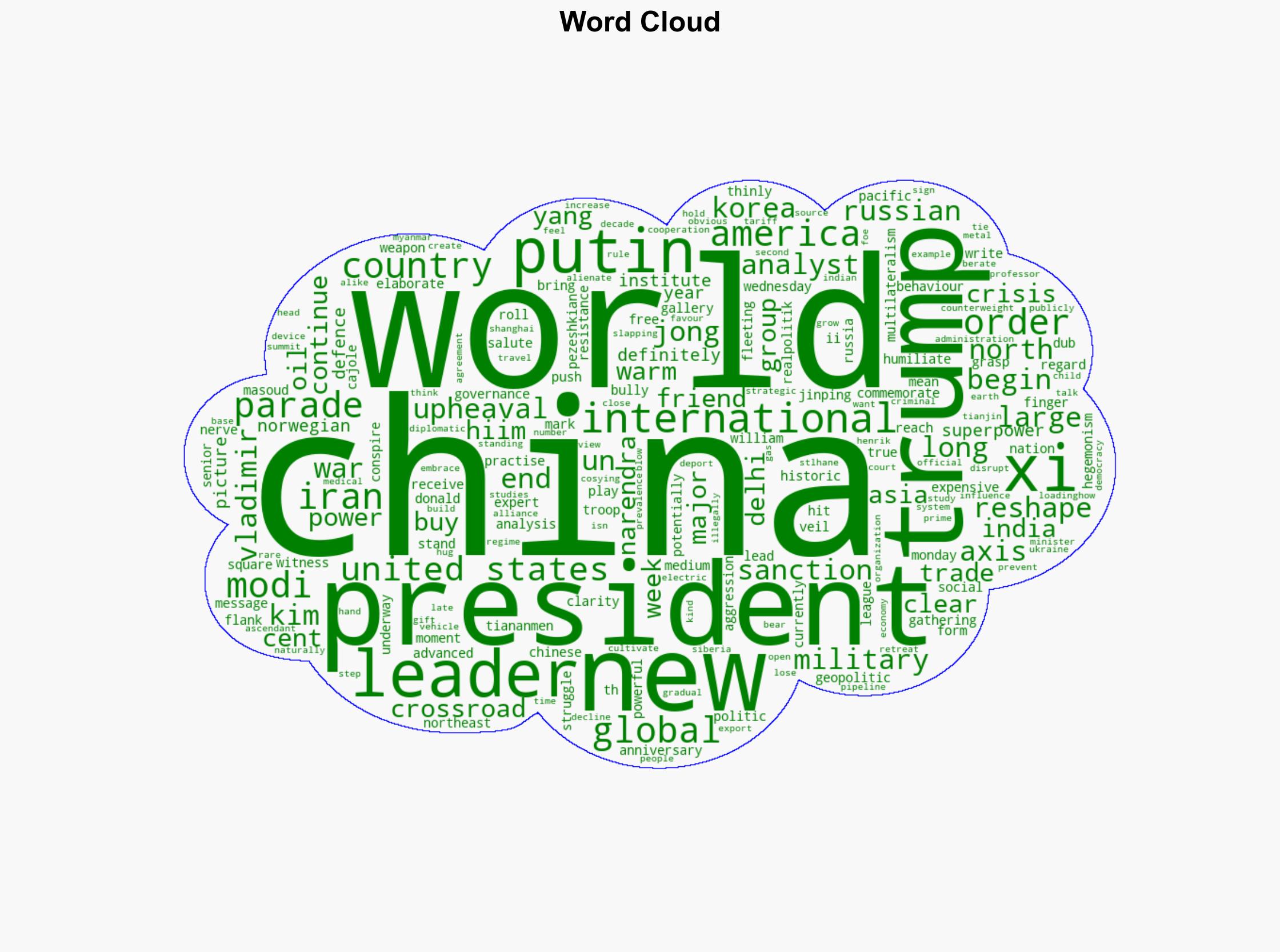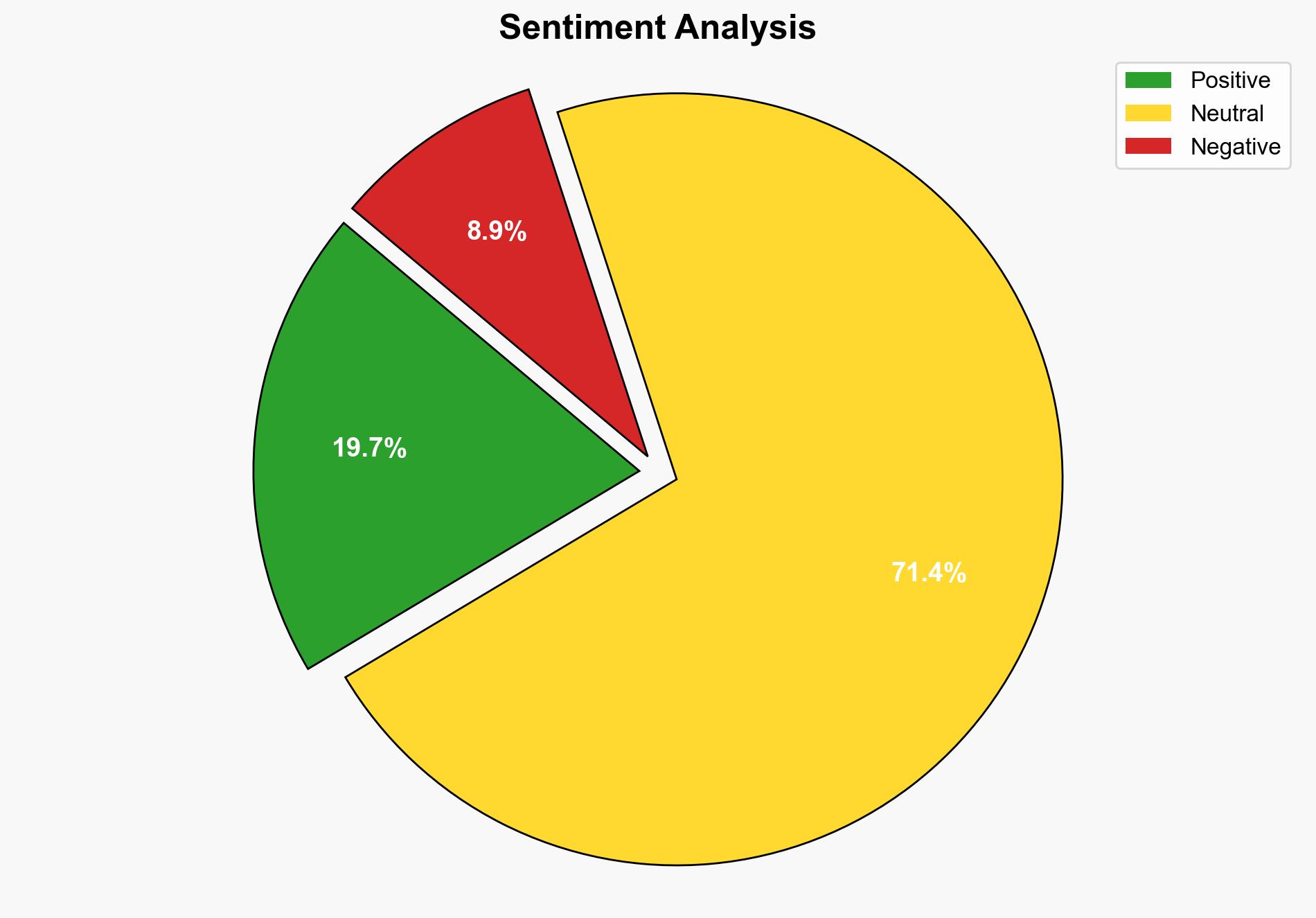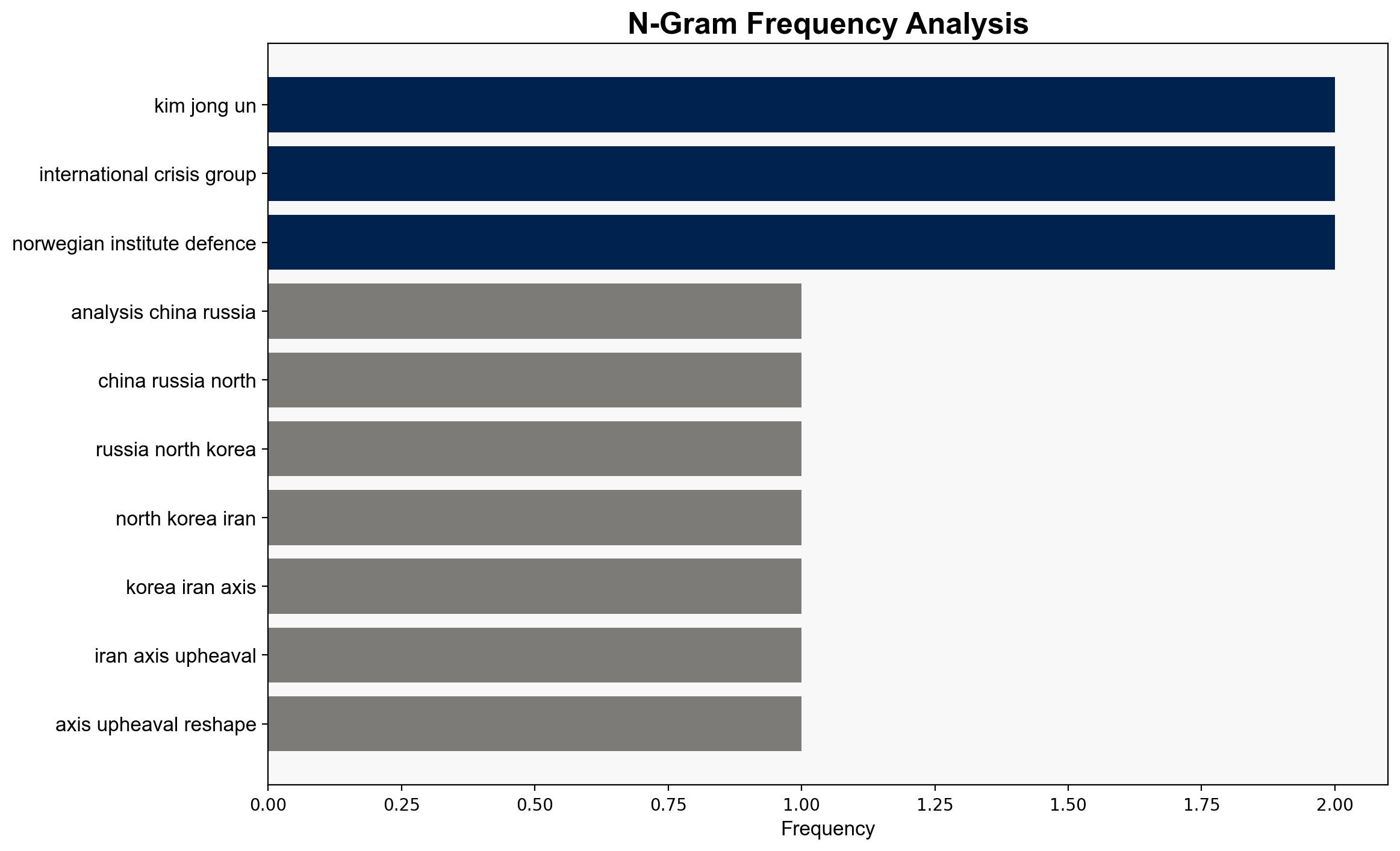Closer ties between China Russia North Korea and Iran are reshaping the world – ABC News (AU)
Published on: 2025-09-06
Intelligence Report: Closer ties between China, Russia, North Korea, and Iran are reshaping the world – ABC News (AU)
1. BLUF (Bottom Line Up Front)
The strategic alignment between China, Russia, North Korea, and Iran is potentially forming a counterbalance to Western influence, particularly the United States. The most supported hypothesis is that these nations are consolidating power to challenge the current global order, with a medium to high confidence level. Recommended action includes strengthening alliances and enhancing diplomatic engagement with neutral or non-aligned countries.
2. Competing Hypotheses
1. **Hypothesis A**: China, Russia, North Korea, and Iran are forming a strategic alliance to counterbalance Western influence, particularly that of the United States. This alliance aims to reshape the global order by promoting an authoritarian model over democratic governance.
2. **Hypothesis B**: The perceived alignment is more symbolic than strategic, driven by shared grievances against the West rather than a coherent plan to alter the global order. The cooperation is opportunistic and lacks the depth needed for a sustained alliance.
Using ACH 2.0, Hypothesis A is better supported due to consistent patterns of military cooperation, economic agreements, and shared political rhetoric against Western policies.
3. Key Assumptions and Red Flags
– **Assumptions**: Hypothesis A assumes these countries have the capability and willingness to sustain a long-term strategic alliance. Hypothesis B assumes that internal differences and lack of trust will prevent a deep alliance.
– **Red Flags**: The lack of explicit, formal agreements suggests potential overestimation of the alliance’s strength. The possibility of internal conflicts or divergent national interests could undermine cohesion.
– **Blind Spots**: Limited insight into internal deliberations within these countries could obscure understanding of their true intentions and capabilities.
4. Implications and Strategic Risks
– **Geopolitical**: A solidified alliance could challenge U.S. influence in Asia and the Middle East, potentially leading to regional instability.
– **Economic**: Disruption of global trade routes and increased sanctions could impact global markets.
– **Cyber**: Enhanced cooperation could lead to increased cyber threats against Western nations.
– **Psychological**: The narrative of a rising authoritarian bloc could undermine confidence in democratic institutions globally.
5. Recommendations and Outlook
- Enhance intelligence-sharing among Western allies to monitor developments.
- Engage diplomatically with non-aligned countries to prevent them from joining this bloc.
- Scenario Projections:
- **Best Case**: The alliance remains symbolic, with limited impact on global order.
- **Worst Case**: A formalized alliance leads to significant geopolitical shifts and conflicts.
- **Most Likely**: Continued cooperation with periodic tensions and no formal alliance.
6. Key Individuals and Entities
– Xi Jinping
– Vladimir Putin
– Kim Jong Un
– Masoud Pezeshkian
– Narendra Modi
7. Thematic Tags
national security threats, cybersecurity, counter-terrorism, regional focus





